IM Shivananda on Chess Part 3 - Development of a Chess Player
Chess improvement is both easy and hard. Easy because of the availability of the information, hard because we don't know what to do with it! How much blitz should I play ? How do I create my opening repertoire? Do I use engines if I am a lower rated player? With contrasting answers from everyone around it can get difficult to understand what to do. However, with coach B S Shivananda's guidance on these subjects, you are sure to improve! In the concluding part of this series, the Indian Fischer puts on the trainer's hat and lists out logical and beneficial advice for each and every chess improver out there! Tanmay Srinath brings forth a succinent interview.
Secrets of Chess Improvement
Interview of IM B.S. Shivananda done by Tanmay Srinath (Links to Part I and Part II)
Tanmay Srinath (TS): Recently I was listening to a lecture by GMs Ramesh and Aagaard, and there RB Ramesh mentions that he considers the middlegame as the most important part of the game at 60 percent, and openings and endgames are assessed equally important at 20 percent each, on a total of 100 percent. Do you agree with this assessment?
B.S Shivananda (BSS) : For me as a chess player, the most important part of the game is the middlegame. Opening is like setting up and endgame is like finishing off. Nowadays due to the enhanced levels of preparation you must be competent in all 3 phases of the game, but without middlegame you are not a chess player at all. So that way I think Ramesh’s assessment of its importance is correct. I haven’t listened to this podcast nor have I read his works, but I really appreciate his work as a coach.
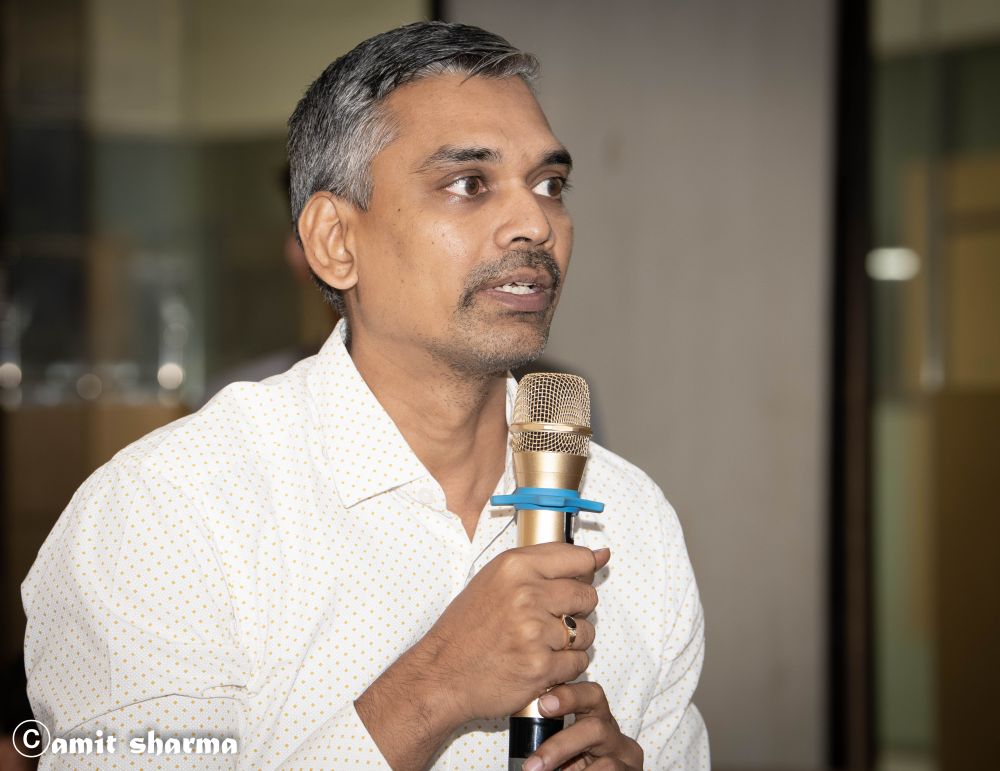
These days, since I run quite a big academy and train students as well as coaches, our first priority is to make sure a student masters the basic middle-game ideas and learns to apply it in his/her games. Only then do we move on to basic openings and endgames, and once this is mastered we take these things to the next level.
TS: How does a person who is starting out choose and build his repertoire?
BSS: It should be based on his/her style. One opening doesn’t suit everyone. You should consider your plusses and minuses honestly. Only then should you begin to choose lines that suit your style of play. Let’s take my example. I am a highly aggressive and creative player. I never had a coach, but I came from a physical sports background (high jump and cricket) where playing actively was necessary, so such a style came naturally to me. Also, if you are an aggressive player, it is easier to progress quickly if you maintain your balance.
So with this background, let us understand my opening choices. I am quite good at speed mathematics and complex positions don’t scare me, so I naturally excel in tactics and complications. I should thus choose an opening that is a little sharp by nature – not too sharp (never overdo it!) and somewhat double edged, something that lights the fire on the board. That way, 1.e4 with White and the Grunfeld with Black suited my style excellently. Thus, one should always choose their openings based on two factors – their stylistic preferences and their plusses and minuses.
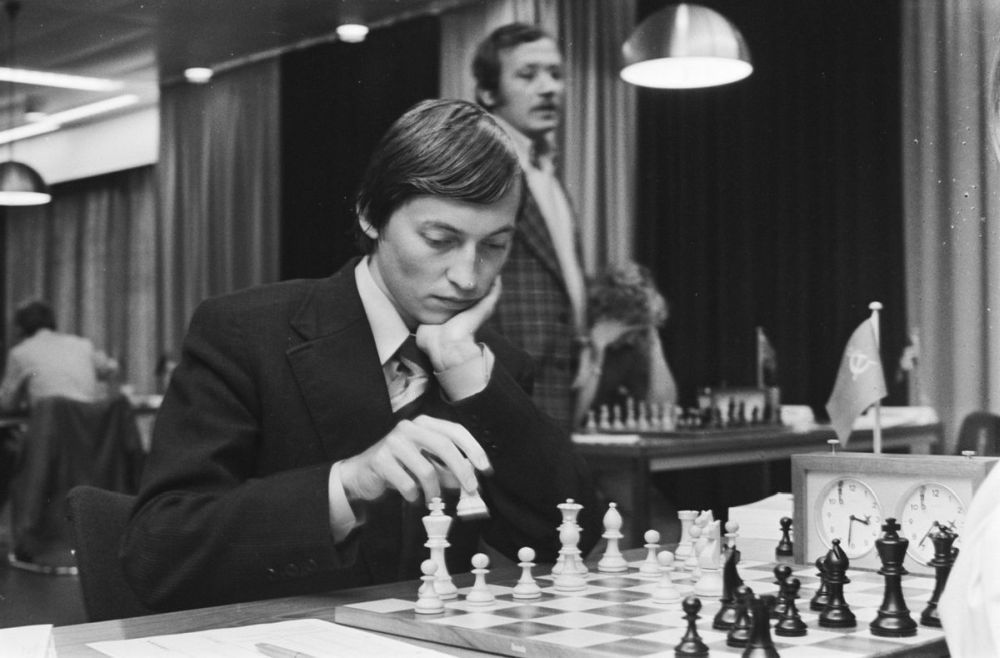
TS: Again, to refer to RB Ramesh’s lecture, because he always makes a lot of sensible suggestions. He suggests that when a player is in bad form he should focus on his plus points and when he is in good form he should work on his minuses. Do you concur with him?
BSS: I haven’t really thought about it (smiles). Basically in today’s chess one can’t become strong without being technically sound. If you are not technically sound then it is very difficult to progress. It’s extremely difficult to win with bluff today. Thus, whether you are in good or bad form, these technical difficulties must be set right.
TS: This question has not been addressed a lot previously. How much time, on a scale of 100, do you think an ambitious player should focus on developing his/her theoretical strength and practical strengths? What is the ideal balance here?
BSS: I think it should be 50:50 – equal emphasis for theory and practical aspects. Since chess is a sport, if you don’t have practical ability you will fail. You should have good concentration, a balanced mind-set which won’t overdo anything, an ambitious mind which isn’t satisfied with small gains and aims for big things, competitiveness which is wanting to outsmart and defeat your opponents, a good psychological balance so as to not be affected by minute disturbances and the ability to handle the stress levels caused by a running clock. There are so many other factors as well, but these are just some of the things you need to be good at. If you neglect the practical aspects of the game you might become a good analyst or a good writer, but not a good player(laughs)!
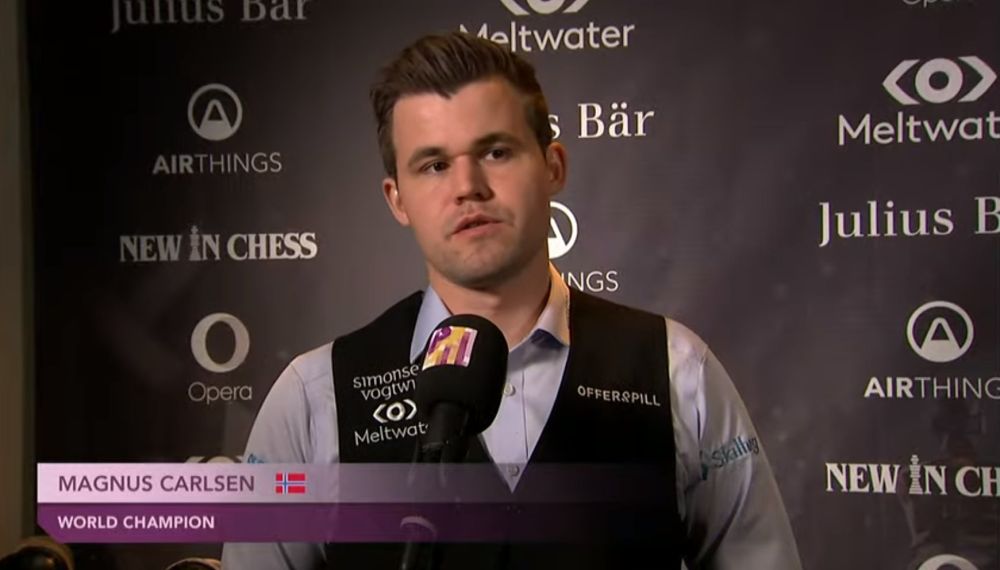
Chess is a sport, so we need to concentrate heavily on practical play, but at the same time if you completely neglect theory everything goes waste. So you need to focus on the technical aspects of theory – important middlegame patterns, suitable opening choices, essential endgame concepts and positions. Along with this practical play should be given priority, with focus on a strong physique (need not be very big) that can be strengthened by cardio, yoga and weight training.
TS: So how exactly do you improve this practical ability? To stay calm during the game, to handle time pressure, to beat off the rating stress, how do you manage all this?
BSS: People who are calm are successful in all fields. First we should have a calm nature – first thing to do is never to react immediately! If you react immediately then you are not able to consider all the possibilities in a given situation, and more often than not this will come back to bite you. Thus this is the first thing to remember. I am not saying you should never react, but only react when you have analysed the situation accurately and after considering all the possibilities.
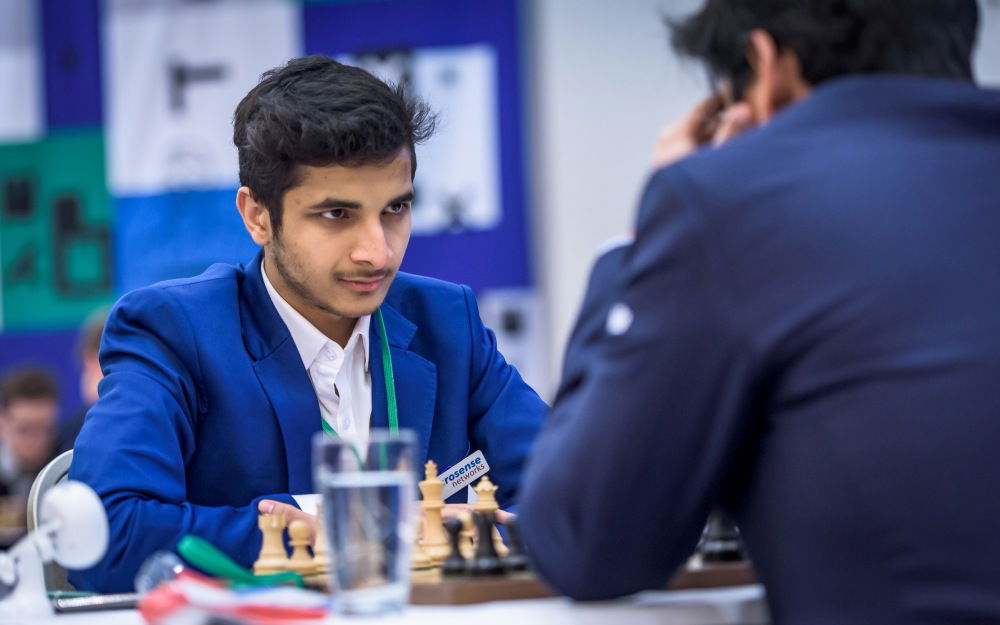
I have a few students who have this problem. (Smiles at author!) Some of them are Martial Arts Champions, where it is necessary to react immediately, but despite being capable they take time to evolve as strong chess players because of this very same attitude. They immediately act rashly and impulsively, in a position that requires a sophisticated answer. Brute force is never the universal solution! Thus this ability to remain calm is crucial if you want to be a successful chess player. This can be further enhanced by some light meditation and deep breathing techniques. The best way to react is never to react immediately! Always take your time and only after considering all the possibilities do you need to act.

I also see a lot of chess players who are physically weak. They have powerful minds, but lack stamina to play. They never thought about what to eat, and how to stay physically strong. To be a strong player one should be physically strong. Physical exercise at-least 5 days a week is compulsory. Normally 30 minutes a day is good enough. This will boost blood circulation, helping the mind think better. Confidence and increased clarity of the mind are added benefits. Something like Weight Training, a bit of running, abs and chest exercises will help increase blood flow in the body and this will definitely boost your chess results. Another important point is to keep yourself in a good mood before a game. Don’t do anything stressful for 15 minutes before the game. Having a fresh mind is the most important thing. Whatever is needed to keep oneself fresh should be done.
TS: Another question that has often received polarising answers. Many coaches and players feel that playing blitz is harmful for your general improvement, but as your student I’ve known you to be a firm adherent of playing blitz. So my question is how does one use blitz to improve, and what are the specifics to keep in mind?
BSS: Playing Blitz is an essential aspect of rapid improvement. Basically the more a player plays the stronger he becomes. Playing blitz improves your reflexes – you quickly start pinpointing tactical ideas and the most important features in the position. You can experiment with different types of openings without worrying about the result. Your time management will improve. If you are good at blitz it means you are able to take quick decisions and that is always useful.
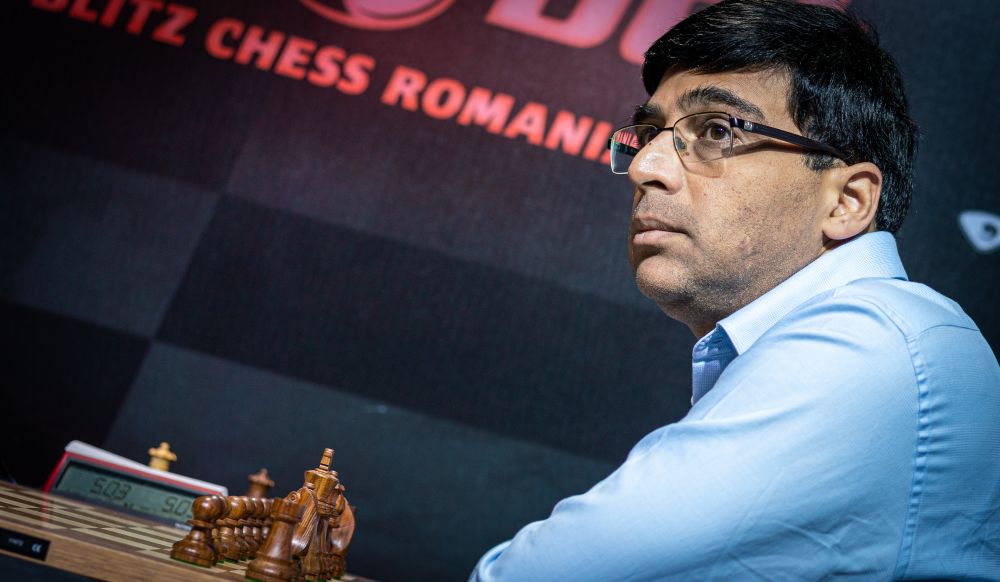
Don’t listen to ordinary people who claim that say playing blitz is bad. Too much blitz is bad if you play for the time and not for the game. Always play for the game and not for the time. For example, in a 5 minutes blitz game play for the game in the first 4 and a half minutes. Only play for the time (and the game) in the last 30 seconds. Analyse briefly after you play 4 or 5 blitz games, not after every game.
TS: How does one improve their calculation skills – length and accuracy?
BSS: Basically my mathematical levels were quite high even before I got into chess, so this was quite beneficial for me. My father was a Mathematics lecturer, my sister is a Mathematics PhD holder and professor, so you can say it runs in the family!This genetic make-up gave me a boost in chess, as I learnt many useful techniques to do calculations faster – outside of chess I mean. Using these techniques I devised my own methods to improve my chess. I will present them from here on.
The first thing is this – when you want to calculate a variation accurately your mind should be fully focused on that variation only! When you are thinking on positional terms it is not necessary to think with such focus, but for calculation a small lapse in concentration will result in a big mistake. Total focus is compulsory!
Second thing is that when you calculate prioritise accuracy over depth. Don’t try to calculate all the variations at the same time – go one at a time. Calculate only necessary things, and try to be as correct as possible. Then calculation will improve. Don’t complicate your thinking process – make it as simple as possible.
Third thing - practicing simple mathematics (addition, subtraction, multiplication and division) should also help improve calculation in chess, as basically we are using the same part of the brain for this. Basic thing to have is clarity of mind – more clarity will result in total focus.
Yes, for adult players focusing is a lot harder because of various issues in the professional and personal spheres. But if you want to excel you have to be motivated and forget those problems at that time. Who knows – when you forget them and play successfully you can solve those problems!
This shows the usefulness of focusing. You have to make a conscious effort to block out the distractions and focus. Everyone has a lot of things on their mind – don’t ever think others don’t have problems! To win in chess and in life a strong body and mind combo is needed. Some people face it with a smile, some with a sorrow, some don’t get affected – that doesn’t mean they don’t have problems. You need to block out the unnecessary emotions at the time.
Basically even I am an emotional person, but during the game I know that if I don’t focus I will not be able to do justice to whatever is in front of me. You need to have a strong resolve, and never try to victimise yourself and think you hold all the burdens of the world! If you achieve good things here they will solve a lot more problems than you can imagine. So stay positive!

TS: How important is pattern recognition in chess? How does a beginner in chess go about developing it?
BSS: Pattern Recognition is an important part of chess. Although the game of chess has infinite possibilities some positions get repeated again and again. A person of high chess understanding with lot of experience and strong strategic (planning) ability can manage any such position.But for other players it is not easy. They need a valid tool and a good method to play such positions. It is called pattern recognition. Learning standard opening theory and endgame themes are part of pattern recognition only. Mastering and understanding important middlegame patterns will save the player a lot of time and effort during real games.
These students should read books and understand important positions which re-occur again and again and get to know the proven methods of playing these positions. Two books are useful for this – Improve Your Chess Pattern Recognition, and Train your chess pattern recognition, both by Arthur Van de Oudeweetering. I have a method for this – read, understand, remember and apply (RURA)! This way any chess theme can be mastered and successfully implemented.
TS: Can players rated below 2000 use engines for analytical work (preparation before the game)? Will it spoil their game or will it help improve them further?
BSS: Using engines is helpful in one sense – it will give you the best move in a given position, which even the World Champion can’t find all the time. One can’t have such great players sitting side by side for each session, and it would cost a big fortune, not to mention cause a huge logistical problem. But if you want to improve your technical play and don’t have an all knowing human coach, why not use an engine for this? An engine has many characteristics that we should hope to emulate – it has unlimited energy, zero emotion, nerves of steel, and absolute focus. It never blunders, and always bases its moves on high-depth calculations.

But when you are using the computer engine don’t turn off your brain engine! Don’t be a player who will give a lot of analysis to the machine and then basically use that without questioning each and every move and trying to understand why that move was played. If you make this mistake chess engines will work hard and increase their ratings from their current 3300 ratings, while you remain the same weak player! Haha (laughs)! When the machine is thinking you should also think!That way what will happen is that when you are thinking along with the machine, you slowly begin to understand the logic behind each move, and why the engine prefers a certain move.
My chess improvement can largely be attributed to two things – playing a lot of online games and analysing them later, and playing a lot of offline games with various chess engines, where I give them them 3-4 minutes per game and I take 25 minutes. The latter improved my accuracy of play. I always take the suggestion of the engines because engines are always objective – they never take a side, but play the position in front of them with no bias. So using engines this way was very helpful for me and will be useful for everyone if they use it like this.
TS: For many 1.e4 players, 1…c5 is often regarded as a big hurdle. You on your part have played the Wing Gambit (2.b4) against it, with tremendous success against strong players. How did you arrive at this?
BSS: Against 1.e4 1…c5 is quite a strong weapon. Two things here – Black fights for the control of the middle squares, while at the same time imbalancing the position a little bit.
Open Sicilian, where White plays 2.Nf3 and 3.d4, has too much theory, and according to me offers no scope of an opening advantage for White. Also, Black is very comfortable with those positions – he knows what he can do. It is also positionally a little bit suspect as it breaks two to three important principles – White gives up a central pawn for a less valuable pawn and either moves the same piece (knight) twice or brings the queen out early. Breaking 3 principles in 3 moves – how can such a variation promise an advantage?
Closed Sicilian (Nc3, d3, g3, Bg2, f4 Nge2 0-0) is possible, but equality for Black has almost been found and many positions are already well studied. Again, comfortable for Black.
Grand Prix Attack is one more method of playing against 1.e4 c5. But again one gets bogged down with the same types of positions, and Black easily achieves equality.
3rd move Bb5 variations (1.e4 c5 2.Nf3 Nc6/d6 3.Bb5) are quite playable, but there is no clarity about how White should continue, and Black gets too many options.
Kings Indian Attack (Pe4, Nf3, d3, g3, Bg2, 0-0, Nbd2, Re1) against Sicilian is a potent weapon, but in a few lines where Black plays a c5 d6 e5 setup he achieves near equality, though White can play for a long game and try to win.
Alapin Variation (1.e4 c5 2.c3) is a little slow and offers the opponent lot of active possibilities. One miss and Black can even take over the game.
So I tried various other ideas, like 2.d4 the Smith Morra Gambit, 2.a3, with the idea of 3.b4, 1.e4 c5 2.b3 and 1.e4 c5 2.Na3. But all these lines didn’t offer that much, and are a little unsound. Finally, when I tried 1.e4 c5 2.a3 against GM Ashwin Jayaram, former National Champion and 4 GM Norms holder Konguvel and a few other strong players, things came to mind that 2.b4 (Wing Gambit) may be stronger! This way I arrived at 2.b4 (Wing Gambit).
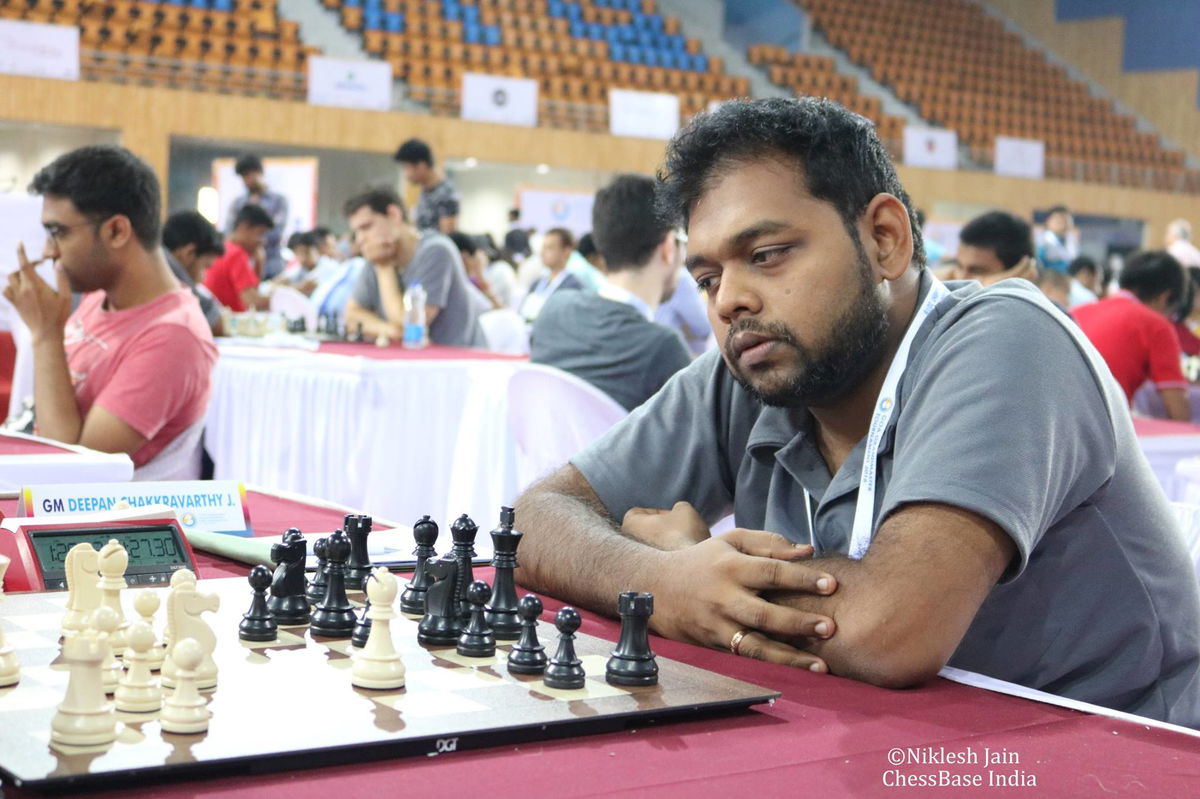
The more I studied this opening the more interesting it became. It also looked as if it would pose practical problems for Black. Black has to play very carefully in the opening and White has got all the chances for gaining an initiative at a small price of a pawn on b4. Theoretically, while the computer might think Black gets equality, in a practical game the position is very much playable for White.
Also, the Wing Gambit is positionally quite sound, as it is quite similar to the Benko Gambit. It also offers White some quick winning chances and all those Black Sicilian players who know too much theory are found wanting in these unbalanced and unclear positions. I have got very good results with it. Other than its own potency, one reason maybe that the opening suits my style. As you know, I have got some good wins against some GMs and numerous quick wins against 2000-2200 players in this line. I will soon write a book on this opening.
TS: As a player, who has in general never taken any government support or private sponsorship, compared to your compatriots who have received support from the government and more money from some other heavy private sponsorship, do you think it is possible to survive as a player without external financial support?
BSS: Even for a person coming from an economically comfortable background, initial years in national and international sporting arena will cost a lot of money for logistics, with minimal returns from tournament winnings. This is because he can’t immediately start winning big prize money, mainly due to lack of strength and sporting experience, while having to spend on a lot of expenses.
Although I am from a remote village, far away from any city, I came from a reasonable upper middle class background. Despite some family financial support I did find it a little bit tough initially. Even later on when I became a stronger player and started earning reasonably it was not so easy for me to live like I wanted to solely from tournament winnings, because I have always had high ambitions – I want to excel both in chess and make it really huge in life! At the same time, taking someone else’s money has never seemed right to me. I am a principled person, who is highly self-driven and wants to live on his own merit. This is why I always rejected sponsorship or sports quota job offers.
From the state government I haven’t taken a single penny in my chess journey, not even a single travelling allowance, forget anything else! This is despite me representing Karnataka for the last 18 years! I got disgusted after seeing the behaviour of some officials back in 2002 when I went to collect my dues. Since then I haven’t bothered to go there and lose my self-respect.If you ask me, it is important to appoint a famous sportsperson with a lot of integrity as a Sports Minister, both at the state and the national levels. While the current Central Sports Minister is a good person, he is not from a sports background, and some officials may mislead him. So, why not make someone like Anil Kumble Indian Sports Minister? He is highly successful, hard-working, honest and has a lot of integrity, and he has the right vision. Most importantly, he knows what it takes and how hard it is to rise to the top in sports. If India has high Olympic ambitions, a successful and honest sportsperson as its Central Sports Minister is a big head-start.
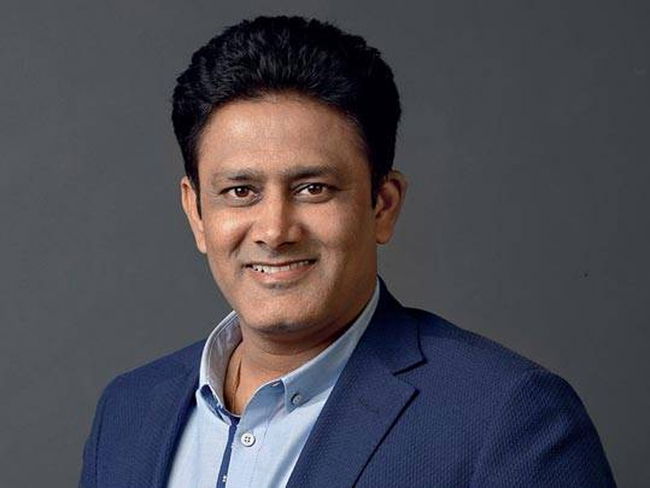
I also rejected many private sponsorships because I wanted to live freely, and I thought I would have to help them later in some other form – I was not interested in this. I am also not a person who will go after people who can sponsor me. It is ok – this attitude made me stronger as a person, and ensured my integrity is intact. Even today I don’t owe anyone even a single rupee – I have managed to maintain an independent financial discipline.Climbing up the ladder to success without any kind of sponsorship somehow worked for me because of my drive and determination to succeed.
But my advice to all the upcoming players would be to take some amount of sponsorship from good people with integrity. But don’t take sponsorship from dubious people.At the same time taking too much of sponsorship without thinking about the future will mean that you will have to compromise your ethics in some way.While being principled and self-sufficient is more correct, in today’s world not taking sponsorship would lead to a lot of time and effort going waste. One can’t do without sponsorship, but at the same time a line must be drawn at a certain point.
TS: An upcoming chess talent will naturally have to face competitive jealousy from weaker but connected chess players, non-chess playing officials from their own associations who act out of favouritism and officers of the Sports Department, most of whom want to make extra money to supplement their official salaries. What are some of the problems you have faced growing up? What is the extent of corruption in chess bodies that you have witnessed? How do you think a chess talent today should deal with this?
BSS: In my career I faced too much jealousy from competitors and established officials. There were also some hidden organisations that created problems for me. Being from a remote village with no one to support me, and attending all the tournaments alone, being successful in chess made weaker players jealous, and they tried to use other methods to subdue me, since they weren’t able to do it on the chess board.
There was one outrageous incident for example. In an important tournament, a few of my jealous state chess mates closed the door of my hotel room from outside so that I come late for that round and forfeit the game. This was done so that have a bad tiebreaker. There have been instances where the pairings were manipulated so that I face strongest possible players, mostly engine cheaters, even if it is clear to everyone else it should not be the case. Once, when I won 3 Grand Prix events back to back, I was denied my first prize money by a Bangalore organiser so that I never come back to play these Grand Prix events again. This was done to open up the field for some other players, who instigated him to do this. There is another problem in Karnataka, although it is financially decent, and Bangalore is easily one of the richest cities in India - the budget for sports is very small and badly distributed. This should be fixed if Karnataka wants its sportspersons to excel in sports.
My advice for budding players is that you should be mentally ready to face all sorts of non-chess hurdles. Neither get disheartened and leave nor take rash decisions to take them head on, because the schemers behind this would have better connections. Sometimes it makes sense to simply neglect such people and concentrate on the game. If it goes too far you should plan for well thought out action choosing the right time and place. Many a times some of these problems will fade away with time. Don’t worry too much about things you can’t control. Just have enough patience and learn to enjoy playing!
TS: Mr. Shivananda thank you for this illuminating interview about your life and your chess philosophy!





